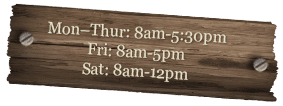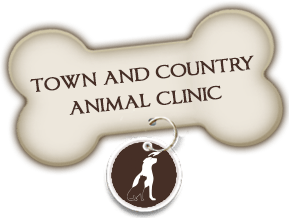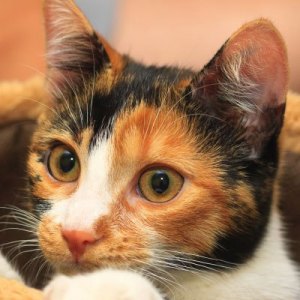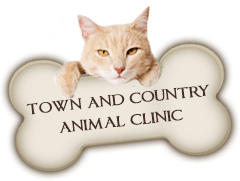Many people know that there are many foods that we eat but are harmful to our pets to consume. (Dangerous Foods For Your Pet) We wanted to expand and discuss other household items that can be harmful to your pets.
Garage: The items we keep in our garage or shed are never intended for our pets to get into, but it happens accidentally. A door that was not properly closed can lead a curious nose into a lot of trouble. Here is a list of harmful items that can be found in a garage or shed:
- Antifreeze, Gasoline, Motor Oil and other liquids intended for your vehicle
Antifreeze is the most common toxin to animals since it has a sweet taste and smell to attract them. If you suspect your pet has ingested one of these chemicals please call your veterinary clinic immediately.
- Wood preservatives
- Lead based paints
- Rodenticides, Insecticides
When using products to bait or kill mice and rats, keep in mind that your pet can be harmed by directly ingesting the product or in-directly by consuming the rodent that has ingested the poison. Consider the location of the product and the outcome for the rodent it was intended for.
- Lawn and Garden Products
Fertilizers can be an attractant to dogs and cats based on what they are made of.
- De-icing Salts
These products may not only irritate your pet’s paw pads, they may also be harmful if licked off of the paws. We recommend washing your pet’s paws after walking on areas where a de-icing salt may have been used. Also there are commercially available boot to protect your dog’s paws.
Be sure to keep all potentially hazardous items up on shelves or in locked cupboards so if your pet happens to accidentally follow you, they are kept safe from these toxins.
Cleaning Products: Cleaning products, as well as any chemical, can be unsafe if your pet ingests them. Small amounts ingested may lead to intestinal or digestive upset but large quantities may be toxic to your pet. Keep these products in a locked cupboard or high enough that your pet cannot get into them.
Human Medication: Although there are some medications that are safe for both humans and animals there are many that cannot be used on both species. Even if it is a product that is safe for pets, the dosage is always different for humans and animals. Since your pet cannot read the directions, they usually end up ingesting more than their recommended dose. Store all of your medications in a locked cupboard or high enough that your pet can not get into the area where the medication is kept.
Kitchen Pantry: Many items commonly found in kitchens can be harmful to your pet. Spices such as nutmeg can be toxic to your animal. Baking powder, and baking soda can be highly toxic as well. Keep items high in cupboards and keeping your pantry door closed will help keep your pet safe.
Toys with movable parts: Even toys that are designed for pets may have parts that are unsafe for pets. Plastic eyes, dangling arms, the plastic cover attaching a string, or stuffing can be something that was not intended for your pet to ingest. These items may become a plug (foreign body) in your pets digestive tract and can require surgery to remove the object.
Holiday Decorations: Holiday decorations, much like toys, can have attachments that are not meant for pets to swallow. Our household decorations may become an issue for your pet’s digestive system and outdoor decorations such as lights, can cause your pet to be shocked if they chew on the cords. Ensure that these decorations are out of your pet’s reach or place your pet in a separate room that is not decorated while you are not home.
String, Yarn, Rubber Bands, Dental Floss, Ribbon: Thin string like items can be an inviting toy for your pets but can cause serious harm if ingested. These items can cause an intestinal blockage or strangulation. Ensure they are kept in a safe, sealed container that will prevent your cat or dog from playing with them.
Fumes from the Stove: non stick cooking sprays and fumes from a self cleaning oven can be toxic to birds. Use caution when using these products around birds.
Plants: There are many plants and flowers have the potential to cause life threatening illness to dogs and cats. For a list of toxic plants and how they affect your pet, check out our resource page at
https://www.townandcountryanimalclinic.ca/resources/client-education-database/
Clothing Hamper: There are many dogs that try to eat clothing items out of the hamper. Although the reason why they do this is unknown, it is a serious problem that can lead to your pet having the items surgical removed from their digestive tract. To prevent this you may have to purchase a hamper with a lid or keep the door closed to the bedroom or bathroom where the hamper is kept.
Electrical Cords: many young kitten or puppies are known for chewing on wires. This may lead to an accidental shock or electrocution. To prevent this keep wires wrapped up and out of sight. There are commercial covers for cords or simple PVC piping to keep them out of reach for your pet.
If you suspect that your pet has ingested an item that may be poisonous, you can call the ASPCA’s Animal Poison Control Center at 1-888-426-4435. They are staffed by 40 veterinary professionals including board-certified veterinary toxicologists, veterinary technicians, and veterinarians. This specially-trained staff will provide emergency and specific analysis and treatment recommendations pertaining to toxic chemicals, dangerous plants, products or substance to pet owners or veterinarians. There is a $65.00 U.S. fee that will be placed on your credit card to receive this expert information.






